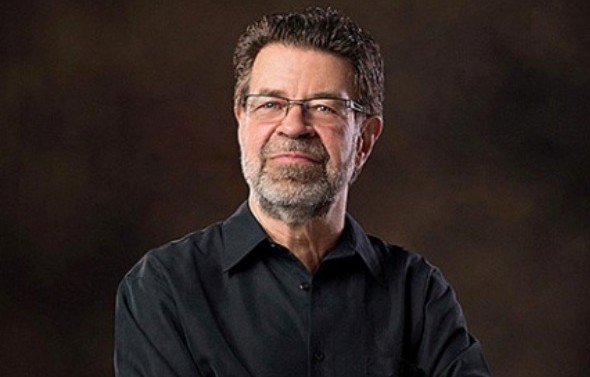How to Train and Practice for the Voiceover Industry
If you’ve always dreamed of being a voice actor, or if you think that the voiceovers you provide are essential, even if they’re only for your own use, voiceover training can make all the difference.
Many people either don’t know how to get involved in voice acting or feel they’ll never be good enough. However, with consistent practice and guidance from quality coaches, it’s been proven time and time again that anyone can do it. The key is being willing to learn and find out what works best for you based on your individual strengths. This article will explore some of the benefits of training, how to train effectively, and, more importantly, where to start!
Do I need to train in voice-over acting?
Many people ask if they need to train for voice-over acting as voice actors do. The answer is it depends on what you want to get out of your training. Generally, here are some of the benefits that come with training and practicing:
- Training helps you improve your craft by exposing you to the same techniques other voiceover artists use daily to get you through their workday.
- Training helps you learn how to get into your characters and live through their identities. As an actor, you’ll be able to understand what it’s like to be someone else and how they feel as opposed to being yourself.
- Training helps you discover your strengths and weaknesses as a voice talent, which will help make sure that you choose projects that are appropriate for your skillset (and hopefully lead you into some more exciting opportunities!).
- Training teaches various other skills that come in handy in the working world and allows you to become very well-rounded in your online presence.
- Training helps you develop a deeper appreciation for the industry and what it takes to succeed in it.
- Training makes the learning process more enjoyable and easier to endure. This isn’t just about making it easier on yourself, though. Your enthusiasm is very likely to rub off on your clients, which will lead them to enjoy their experience with you even more!
How Do I Get Started With Training and Practice?
Now that you know why you should get into voiceover training, where do you start? Generally, there are two significant ways of training and practicing: working with a coach and learning to be a better actor by yourself. You can probably already see the difference- some people would benefit from both (which is what most people do), but others need a coach, and then some will have no trouble on their own at all. Of course, your ideal approach will depend on what you’re looking to get out of your training.
Before exploring your options, however, let’s look at what you will need to get started.
What Do I Need To Get Started?
Like any other art form, voiceover requires a specific set of skills to make it work. These skills come in media, audio equipment, and software that will allow you to convey your message as effectively as possible. The good news is that you don’t need much more than what’s most likely already in your home these days! As mentioned before, you will only need an essential list of equipment to get started:
– A modern computer with internet access
– A microphone and an audio interface
– Editing software

Practice also requires a high level of self-discipline and motivation to make it work. If you ever find that you’re not enjoying your practice, look for ways to make it better. It never stops being fun as long as you keep at it! With each session, you’ll come closer to expressing your talent in a way that will shine through all the noise we put out as voice talents every day!
As you practice, you’ll start to get an idea of your “range” or the different characters you can play. You’ll also be able to find your niche as an actor, which will make it much easier to improve and better prepare yourself for what’s coming in the future! Then, when you’re finally ready to approach clients and land jobs, you’ll know exactly what they’re looking for and how to deliver it.
Working With A Voice Coach
Who Is A Voice Coach?
A voice coach is just what it sounds like someone who coaches you to act more professionally, effectively, and enjoyably as a voice talent. Most coaches will be working with professional voice actors themselves who know the business and can teach you about all of the problems you might encounter in your career. A great coach will also help you find your unique strengths and weaknesses as an actor and help you find ways to make the most out of them.
Do I Need A Voice Coach?
Just like everything else in this post, it depends on what you’re looking to get out of your training. Some people would benefit from the help of a coach, but others are much happier on their own. Generally speaking, here are some of the benefits of training with a coach (and why you might want one):
Trainers can help you develop your voice and find your unique talents as a voice-over artist.
Trainers will give you tips on how to use your voice effectively and deliver it professionally.
Trainers will critique your work and ensure that you’re improving at a steady pace. If not, they’ll give you ideas on what could be holding you back.
Trainers will help you hone your skills and find the right kind of approach for your unique talent.
Having a trainer helps you find a routine for your training, which will make it easier to stick with it!
Having a trainer helps keep you accountable (along with other voice actors) so that you don’t miss any sessions!
How Do I Find the Right Voice Coach for Me?
Like any other role in your life, there are certain qualities to look for in a good coach or trainer. Here are some of the factors to consider when looking for a good voice-over coach:
1. Professionalism and Experience
Voiceover coaches should have professional experience in the industry. Unfortunately, this isn’t something you can tell right away. Make sure to look for a coach with expertise doing voiceovers that you can find through online searches or by asking your local voice talent community!
Look at their acting and coaching experience to see how long they’ve been in the business and what impact they’ve had overall.
Look at their resume to see which studios they’ve worked at and if they’ve done any commercial work (this is a great starting point!).
2. Skill Level
One of the first things you’ll notice with a coach is their ability to customize your training to the strengths of your vocal talents. Of course, it’s not always easy to tell exactly what they can do, but there are some excellent ways to tell:
- Understandable feedback means that the coach gives you clear, practical, and helpful information on how you can leverage your strengths.
- Personalized attention—the coach will consider your input when giving critiques so the students know what skills they’re working on without having to look them up.
- Direction: The coach knows what they’re doing and has a plan to get you there, which makes the practice sessions much more useful.
- Clarity – the coach can take complex concepts and explain them in a way that helps you understand them.
- Excellent feedback and support—this is where really great coaches make all the difference. They’ll not only keep you motivated but also find ways to fix things that might be holding you back!
3. Methods and Training Material
There are loads of training methods to choose from when doing voiceover work. A good coach will know how to determine what’s best for your voice and help you develop it into something great. It’s also important that they have the right kind of training material for your unique needs!
A voice coach should be able to help you build a solid foundation for your future work. The more techniques they can give you, the better!
Voice coaches should also have resources that help you understand precisely the point behind each exercise and why it’s important.
Voice coaches should also have methods for learning how to do any raw material that you might be struggling with.
4. Price For Value
Voice coaches are just like any other type of trainer – it’s important to strike a balance between value and cost. If the coach is clearly overcharging for their services, look to find someone who can give you what you need at a more reasonable price.
Generally speaking, a good coach can make the difference between people being stuck or improving. It’s important to find someone who cares about your success and has the right methods for helping you achieve it!
A good coach will consider your input when giving critique, so you have a chance to earn their support!
5. Personality and Interaction
Of course, it’s important that your coach is a good communicator and can work with you during the training sessions. How they communicate with you will be a significant factor in how much you improve as a voice-over artist!
It’s important to find someone with a positive attitude who also has experience working with others. A good coach will be motivating and encouraging while providing constructive feedback that helps you understand your strengths!
It’s also important to find someone who can understand your needs and work at your own pace. A great coach will also help keep things fun while encouraging you to do your best!
Can I Train by Myself?
While working with a professional (especially when new to voice acting) is generally advisable, you can also train by yourself. Remember, though, that you might not get the same results you’d get from working with a coach. Here are some tips to help you practice so you can have the best training experience possible:
1. Read Out Loud
Read out loud to yourself. It’s a great way to practice your material and get a sense of how it sounds.
Read out loud anything you’d like! Read a script, read your training material, or just read random sentences.
When you read something out loud, it’s essential to pay attention to the emotion. Reading out loud can be super helpful for this!
If the emotion isn’t coming through in your voice, try changing the pitch or speed of the words. – Some exercises can help you improve your tempi, such as vowel exercises or word-to-vowel exercises.
2. Watch TV Commercials
In the commercial industry, it’s super important to learn how actors present! Commercials and voice-over actor news websites are great places to get real-world experience.
Watch as many commercials as you can, listen to the voice actors’ delivery, and pay close attention to their pacing, delivery, and subtle nuances in their voice.
Try to mimic the presentation in your voice. You can also try picking up on the rhythm of how they speak.
3. Attend Acting Classes
If you don’t have a local acting class in your area, consider taking one online! They can be super helpful in understanding how the voice-over industry works and brushing up on your acting and audition skills.
If there is a local acting class you can take, consider registering for it. It’s a great way to brush up on your acting skills and find ways to improve as an actor!
You might feel out of your element at first, but remember that everyone was new when they started!
4. Audition and Read Professionally
Many voiceover services require you to send out a copy of your work to be evaluated before you can join. This is a great way to see how your work sounds to real actors and professionals.
You might get some good feedback on how to improve! Remember, however, that clients do not like being pressed for feedback – it’s usually better to wait than to ask for it!
Another great resource is casting calls on websites. They usually give you some direction on what they want, and then you have to send out your audition.
It’s best to look realistically at your options and pick the ones that are most likely to get you hired for the specific job.
5. Use a Voice Recorder
The voiceover industry is evolving at a fantastic pace. Recordings are what help you get hired in the first place, so that’s something to keep in mind!
This is one of the best ways to develop your skills. It’s like having a coach but without having to talk to someone! Instead, you can focus on your own work and give it everything you’ve got.
This will also help you hone your voice by practicing different projects and different kinds of characters. Try recording things that you wouldn’t normally do!
6. Listen to Recordings of Other Actors
This is another excellent way to see how other professional voice talents have their voices worked on and how they sound when they’re creating their voices.
You can also use this to get ideas and see how others are vocalizing their work.
As a general rule, it’s always best to listen to professionals who do voice work instead of on-camera actors. They will usually have more experience, and you can learn the best techniques from them.
7. Watch Professional Voice Actors on YouTube
This is another excellent way to check out how other professionals have gotten their work done.
- YouTube can be a great resource for getting new ideas for creating new voices or vocalizing your characters in a unique way!
- Check into the voice acting community for more feedback and advice!
8. Watch TV Shows and Movies
This is an excellent way to see how the voiceover industry is presented!
Take note of the styles used and the actors used for roles. Often, you can tell if they did voiceovers or not based on their parts!
You can also see how directors use specific techniques while promoting their shows, commercials, or films.
9. Read Scripts
Scripts can be found online or at auditions. It’s a good idea to keep a script book in your home so you can practice reading and audition from it!
Listen to how they read it and see how they sound while reading it. Pay attention to the emotion, the character’s mood, and any rhythm issues!
10. Listen to Audiobooks
This is a great way to get a handle on how presentations are made. You can also use this as a ton of ideas for examples of incredible voices. It’s also a great way to hear how others use their voice to convey different emotions and switch between characters, and you can learn about presentation and character work.
You can listen to an audiobook in your car by using Audible!
Important Things To Know Before Getting Started
1. Be ready to take criticism: It can be difficult to take criticism, but it’s an excellent way to get better as an actor if you work hard and listen to feedback!
It will also help you consider your own acting as a business. If you’re serious about this career path, you’ll have to start putting in the effort!
2. Practice so much that it becomes natural: Practice is important and can be challenging and time-consuming! You need to have a lot of time and patience for this.
– Be sure not to get too frustrated or down on yourself if your voice doesn’t sound great all the time. This is not something that happens overnight.
Remember, you’re not a voiceover artist yet—you’ll be one in time! You just need to have the skills and confidence to do it!
3. Be patient: It can take a long time to get a voiceover agent to call you back. Most of the time, you’ll need to send out demos many times and work on your craft before someone hires you. You might never get picked up! It’s hard to know how someone else will respond, so it’s best not to get discouraged if people say no.
Remember, some actors have been working in the industry for years and still don’t have agents!
Also, keep working on yourself even after a job is done. Voiceover roles are available in every industry and come from every kind of background, so you never know when something might pop up!
4. Experience: It’s not a bad idea to get experience in traditional acting. You can develop your skills and show others who you are as an actor!
You’ll also be able to network with people and take advantage of opportunities that come up.
5. Stay in touch with voiceover jobs: There are many ways to stay in touch with what’s going on in the industry, so don’t be afraid to look around!
Voiceover websites, casting calls, and professional sites are all great places to start.
Conclusion
It’s important for any aspiring actor never to give up and keep working hard at whatever it is they’re interested in! Whether you’re just starting out or want to be serious about voiceover, remember these tips:
Invest in lots of good, quality recording equipment. This will allow you to take your work seriously, and you can start shaping your voice as an actor.
Be sure to listen to and work on yourself. If something doesn’t sound like it should, keep working on it until you get an excellent vocal result.
Try to get experience in traditional acting. Just like voiceover, this is important for business reasons and networking purposes. Opportunities will come up!















